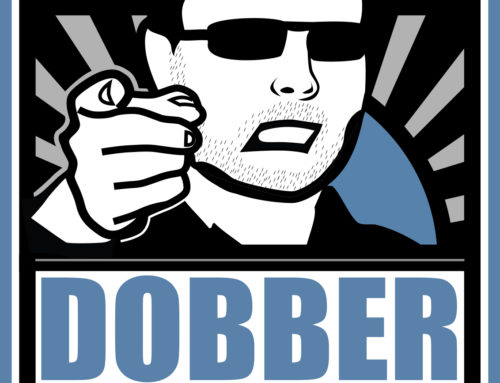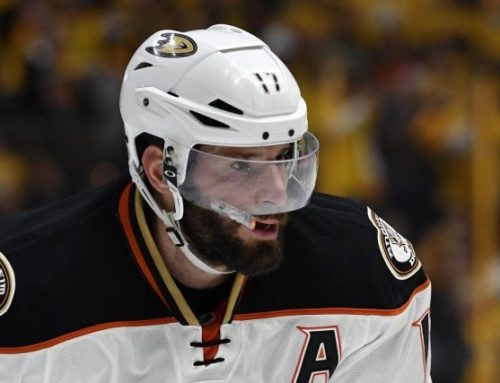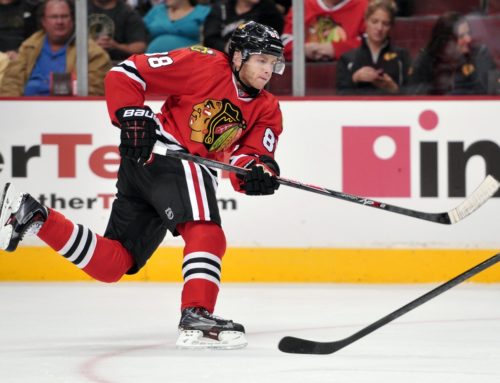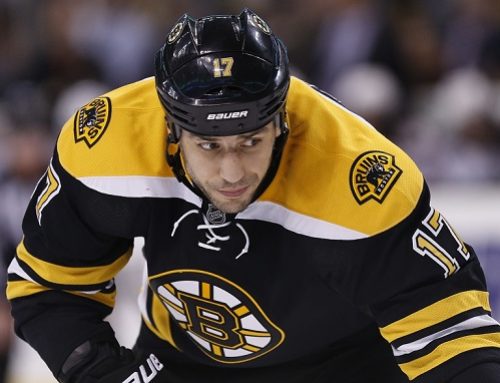
Since we're transitioning from the Olympic aftermath to the onset of March Madness, today's lecture will reflect on a number of goaltending dynamics that were revealed to me over the last two weeks. I think these trends will not only affect how your fantasy goalies play this week, but if the Olympics were any indication of what the NHL's playoff push will be like, they could impact your goalie's long-term potential as well.
The first influential goalie trend I witnessed during the Olympics was the outrageous irony behind the goal line. The lack of a trapezoid, which was supposed to increase the goalie’s ability to move and handle the puck, had the exact opposite effect. Numerous bad passes, turnovers and terrible decisions with the puck were a dirty scourge on Olympic goaltending. Adding to the madness was the fact that no goalie made bigger mistakes than the puck-moving wizard, Martin Brodeur. But just about every goalie was victimized by this illusion of time, even Ryan Miller.
I call it an illusion because of the simple fact that goalies were deceived by the speed of plays (and players) coming at them. Due to a lack of a trapezoid, goalies were caught in many situations where the extra space to move around influenced their timing and decision making. Combined with the intensity of games and the speed of forechecks, goalies made too many delayed decisions, shanked too many clearing attempts and had way too many turnovers. You can also credit the decreasing ice quality as a slight factor, at least as much as it affected the forwards.
The next dynamic that wreaked havoc on goalies was the lively boards and the kick-plate. Some of you might remember my diatribe into the kick-plate dynamic less than a year ago, when Niklas Lidstrom and the Detroit Red Wings clearly used their springy boards to their advantage when the Stanley Cup Playoffs got underway.
The Kick-plate Headache was alive and well in the Olympics. There were at least a few situations in each game, sometimes in each period, where it forced goalies to scramble or execute outside of their comfort zone. You can also point to issues with a protruding stantion behind one of the nets in Canada Place as a distraction as well. It was brought up numerous times on TV and even though it didn’t rear its ugly head often, it still loomed over goalies.
Probably the most interesting dynamic in my Goalie’s Olympic Notebook, however, was the difference in performance between those that started every game and those that had to deal with sitting on the bench. What turned out to be a clear trend was frustratingly fogged up when Halak had a third-period meltdown against Finland and Miller ended up with the overtime loss to Canada.
I say it was frustrating because the goalies that had better execution on a more consistent basis were the ones that played every single game. But their fate in this tournament was like getting stuck in a twisted, rusty barbwire fence. The more they move around, the more it ripped into their skin. So the Olympic workhorses, those with the consistent minutes, somehow ended up as the losers. I have to admit, I was really expecting it to be the other way around.
Of course there were still some elite NHL goalies (Nabokov, Kiprusoff, Lundqvist, Greiss, Brodeur) that clearly struggled with their rhythm and timing after sitting on the bench, but Halak, Jonas Hiller and Miller were all in prime positions to pounce on a win and still fell just short.
And therein is the dilemma of these Olympics from a fantasy goalie perspective. What’s more valuable? The goalie that shows higher skill, more focus and better puck-stopping ability in a losing manner, or the goalie that does not perform as well, yet ends up being more "timely" and one save better than the other, despite struggling? Would you rather have a win with a 3.5 GAA and .902% or a loss with a 2.1 GAA and .923%? I'd take the latter, of course.
Luongo was clearly a victim of rhythm killing after the coaching staff chose to bench him for two games. Upon his return, he was average at best and played just well enough to win each game. He made some shocking mistakes in the Gold Medal game and single-handedly gave Team USA more opportunities to score goals and steal momentum than they needed. But ultimately, it didn't cost Canada anything – he still came out victorious – he still won Gold.
Miller, who was tested more often, was clearly the better goalie in the Gold medal game and played strong enough to garner Tournament MVP honors. Regardless, he went home with the Silver medal. That would make two Olympics in a row where a losing goalie was also named the Tournament MVP, as Antero Niittymaki won it in Torino in 2006.
So even though it’s tough for me to stomach some of the results in these Olympics, I can’t help but reflect on Ron Wilson’s quotable quote before the games even started.
“Sometimes, the best team in the tournament doesn’t win a Gold medal…” he said.
Sometimes, the blood of heroes is not always shed in a victorious manner. Sometimes, that's the harsh, shocking reality of life as a goaltender. But it’s not just the loss of a defining game or the unjustness that comes from outplaying the winning goalie that hurts. It's the loss of purpose and taking a blow to the internal armor of confident optimism.
These losses pierce a goalie's heart with a poison-tipped arrow, as the stain of slim, monumental defeat doesn't wash away easily. And while many Team USA players were seen fighting back smiles while being adorned with their Silver Medals, Miller’s demeanor was the polar opposite. He looked exhausted, frustrated, despondent and lonely.
Now, burned out from the quest that has sucked up so much energy, don't be surprised if he falls into a period of weak execution or focus. This goes for all Olympic goalies that were stretched to their mental, emotional and stressful limits. Nabokov, Greiss, Lundqvist, Kiprusoff, Brodeur, Luongo, Hiller. None of them are impervious to the different aspects of human nature that impact how they perform. Their play dictates who they are and what they will become. It is not just a game – it's their future – their story – their small chapter in the giant book of professional hockey.
Sure enough, there will still be at least one or two goalies that find a way to defy the norm. Some will turn their Olympic experience into a positive boost and play stronger upon return to the NHL while a few will stay relatively the same. The fun part is trying to decide who goes where – and that all begins tonight. Pay close enough attention to the footwork and mental aspects of your fantasy goalies and March Madness can easily be March Happiness.
You can see some more of my thoughts on Luongo and Miller in the Olympics right here in the forums!





 OTT
OTT TOR
TOR MIN
MIN VGK
VGK COL
COL DAL
DAL EDM
EDM L.A
L.A CAR
CAR CHI
CHI STL
STL MTL
MTL N.J
N.J PIT
PIT
